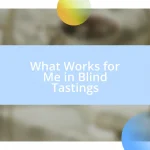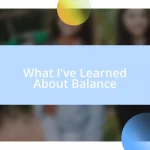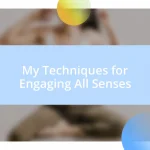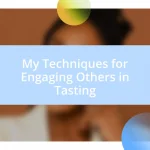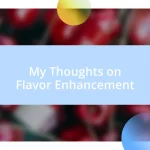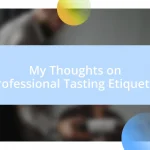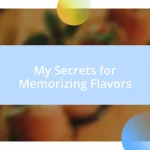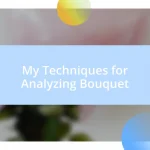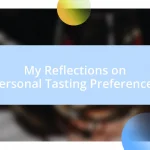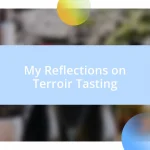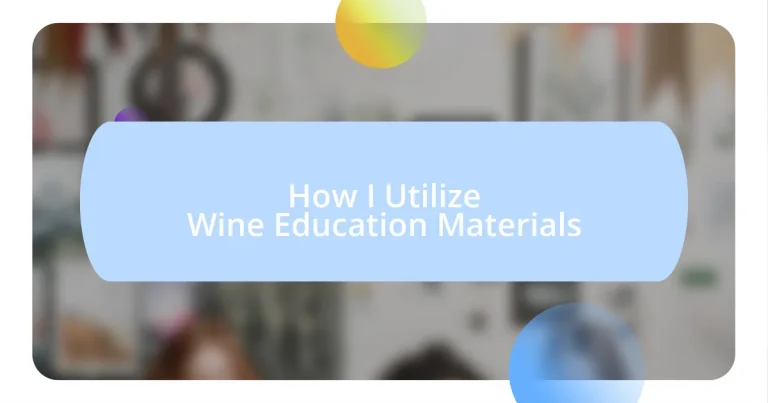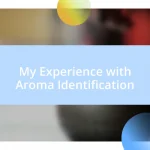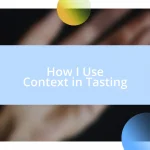Key takeaways:
- Wine education materials come in various forms—books, apps, workshops, and online courses—catering to different learning styles and levels of expertise.
- Engaging with wine professionals and participating in tastings enhances both knowledge and social connections, making wine education a shared experience.
- Choosing the right educational resources involves aligning them with personal interests and learning styles, transforming the journey into an enjoyable adventure.
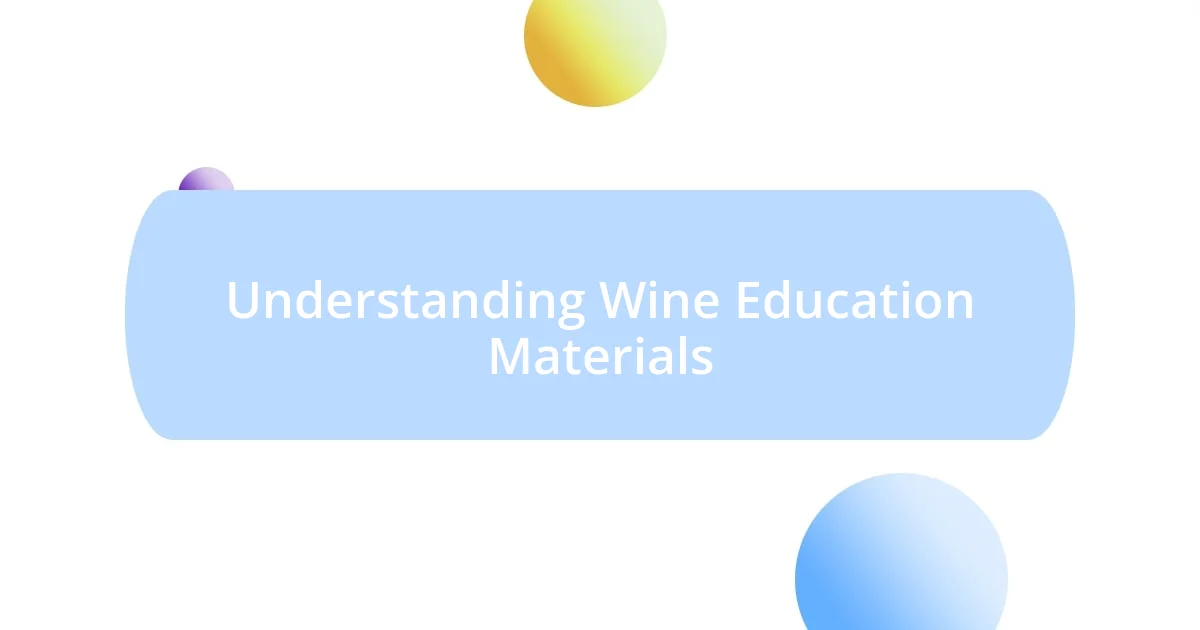
Understanding Wine Education Materials
Wine education materials are a treasure trove for anyone looking to deepen their understanding of this fascinating subject. I remember the first time I picked up a well-crafted wine guide and felt like a whole new world opened up before me. Have you ever felt that thrill when you discover something new about a hobby you love?
When it comes to these materials, the diversity is astounding. From textbooks detailing the science of winemaking to online resources that offer virtual tastings, there’s something for every learning style. Personally, I found that interactive webinars helped bridge the gap between theory and practice, allowing me to engage with experts and ask questions in real-time. How do you prefer to learn about wine—it’s a question worth pondering as you explore your own journey.
Understanding wine education materials also means recognizing how they can cater to different levels of knowledge. Just last week, I guided a friend who was overwhelmed by the sheer volume of information available. We sorted through the beginner-friendly materials together, and I could see the confidence grow in her eyes as we demystified wine terms. It made me realize that these resources are not only informative; they’re also empowering.
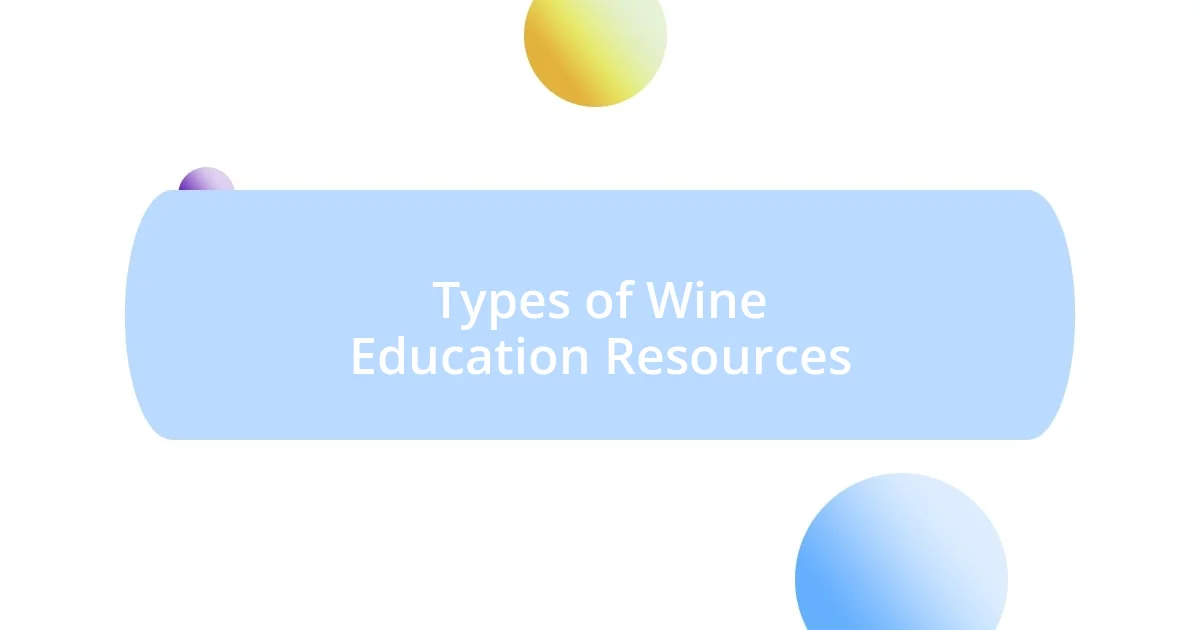
Types of Wine Education Resources
The range of wine education resources is quite impressive, and each type serves a unique purpose. For instance, I’ve often turned to dedicated wine apps when I’m on-the-go, and they have transformed my wine knowledge while dining out. I can quickly look up notes about a wine I’ve never encountered, which adds both depth to my experience and confidence in my choices. Have you ever realized how handy a quick reference can be in those wine shop moments?
Books are another vital component of wine education. When I started my journey, I found myself hunched over my desk, flipping through a comprehensive wine atlas. I can still feel the excitement of tracing the wine regions of France with my finger, learning about each area’s terroir. It’s fascinating to delve into the historical aspects of winemaking and how they influence the flavors in a glass. Have you had a similar moment of discovery through reading that sparked your passion?
Lastly, community workshops and tastings are invaluable avenues for interactive learning. I vividly remember attending a local wine festival where I had direct access to winemakers. I felt like a kid in a candy store as I heard stories behind each bottle and practically sipped on history itself. Those sessions not only deepen your understanding but also forge connections with fellow enthusiasts—making wine education a shared experience rather than just solitary study.
| Type of Resource | Advantages |
|---|---|
| Apps | Convenient on-the-go information and recommendations |
| Books | In-depth knowledge with historical context |
| Workshops & Tastings | Interactive learning and networking opportunities |
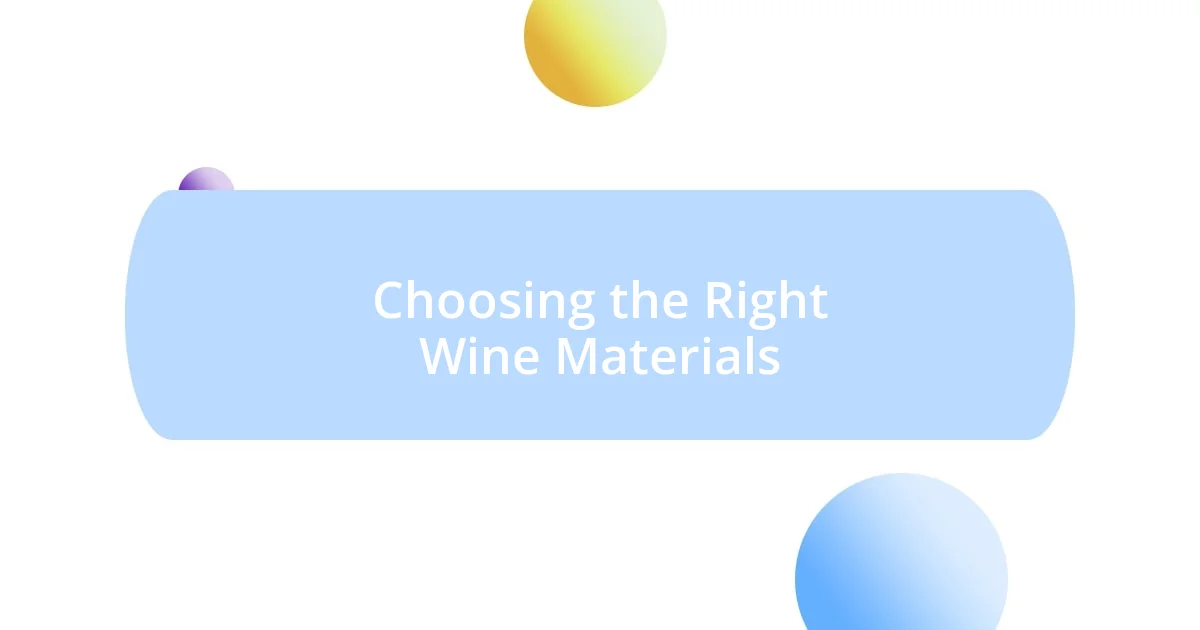
Choosing the Right Wine Materials
Choosing the right wine education materials really comes down to what resonates with you personally. I once made the mistake of diving straight into scholarly textbooks, thinking they would be the gold standard—only to find myself lost in jargon. It was a lesson learned, reminding me that the best materials are those that match your comfort level and interests. Sometimes, a simple, visually engaging guide can be far more effective than a dense academic tome.
- Consider Your Learning Style: Do you prefer hands-on experiences or visual aids?
- Focus on Your Interests: Are you more drawn to specific regions, grape varieties, or tasting techniques?
- Assess Your Knowledge Level: Opt for materials that match your current understanding to avoid feeling overwhelmed.
When I later tried a mix of engaging videos and fun infographics, everything clicked. I could actually visualize the concepts! I realized that enjoying the journey—rather than striving to master every detail—was key for me. Finding the right wine education materials should feel like a playful adventure, not a chore. Embracing this mindset led me to discover resources I genuinely connect with, turning learning about wine into an exciting exploration rather than just an academic exercise.
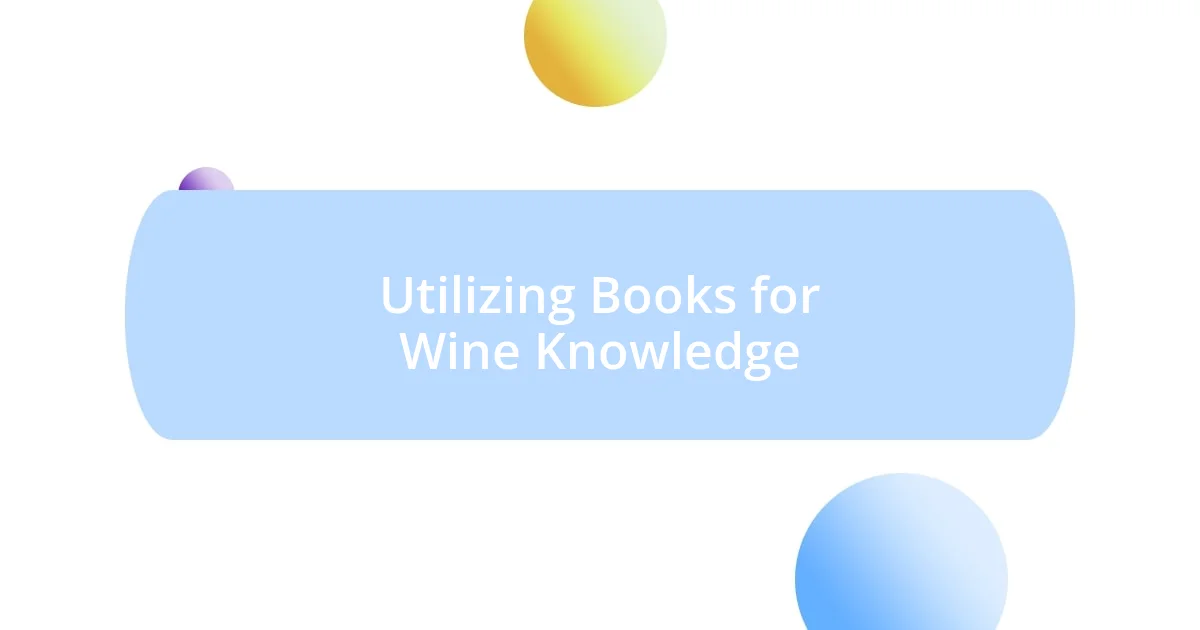
Utilizing Books for Wine Knowledge
Books have been my trusted allies in deepening my wine knowledge. I distinctly remember curling up with a classic guide, “The Wine Bible,” and feeling a sense of belonging. It was as if the pages were inviting me to explore the intricate world of grape varieties and their unique attributes. Have you ever lost track of time in a book that truly speaks to you?
I find that some books not only educate but also inspire. A few years ago, I read about the winemaking traditions of lesser-known regions, and it opened my eyes to wines beyond the familiar labels. Each chapter felt like an adventure, unraveling the mysteries of different soils and climates. It made me wonder: how many hidden gems in the wine world are waiting to be discovered?
Beyond the technical details, the personal stories woven into these books add another layer of connection. I recall reading about a winemaker’s journey from grapes to glass, and it clicked for me—understanding the challenges and triumphs behind every bottle makes appreciation so much richer. When was the last time you felt that connection through a book? It transforms the experience of sipping wine into something profoundly personal and intimate.
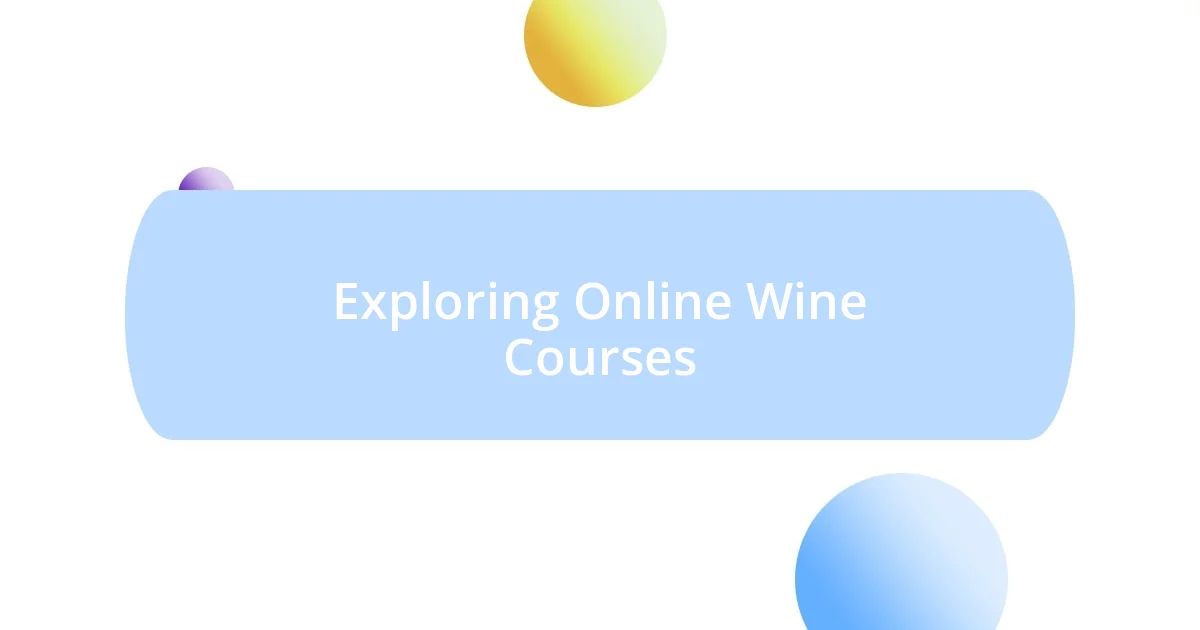
Exploring Online Wine Courses
Exploring online wine courses has been a transformative experience for me. I remember one evening, sitting on my couch, scrolling through the many options available. I stumbled upon an interactive course that offered not just videos but also quizzes and tasting assignments. Engaging with each module felt like having a wine educator right next to me, guiding me through the nuances of flavors and regions. Have you considered how the right course can make learning feel less like studying and more like an exciting adventure?
One course that truly stood out was one focused on food pairings. I recall hesitating at first—pairing wine with food seemed daunting. However, through practical exercises, I discovered the harmony that can be achieved when combining specific wines with different dishes. It was exhilarating to realize that my simple dinner could be elevated just by choosing the right bottle. Have you ever experienced a flavor explosion simply by matching a wine to your meal? Those moments make the education process utterly rewarding.
The community aspect of online courses has also brought unexpected joy. I found myself exchanging ideas and experiences with fellow wine enthusiasts from around the globe. Those discussions have helped me appreciate diverse perspectives, making the learning experience feel collective and personal. Isn’t it fascinating how a shared passion for wine can connect people, even from different corners of the world? Engaging in those conversations has enriched my understanding, reinforcing the idea that wine education is as much about community as it is about individual exploration.
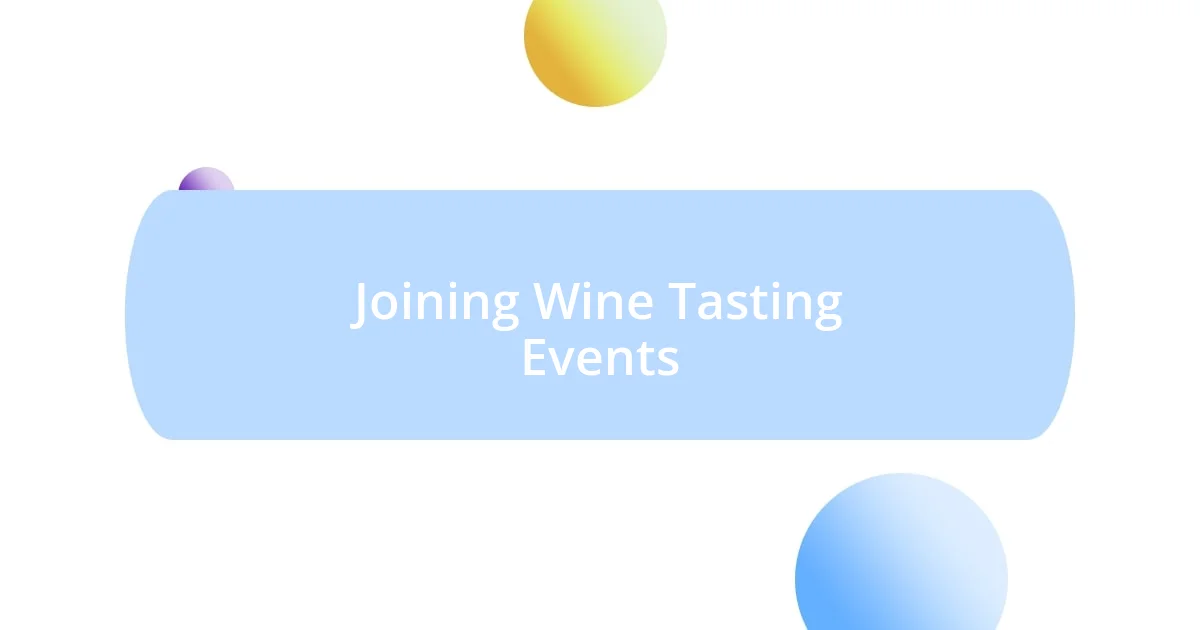
Joining Wine Tasting Events
Joining wine tasting events has been one of the most enjoyable ways for me to expand my wine palate. I vividly remember my first tasting at a local vineyard; the atmosphere was alive with laughter and chatter. As we swirled and sipped, I realized that tasting wine wasn’t just about flavors but about the stories behind each pour. Have you ever felt that buzz of excitement when discovering a new favorite alongside fellow wine lovers?
Attending these events has enriched my wine knowledge in ways I hadn’t anticipated. Each experience introduces me to passionate winemakers who share their insights and passion. I once had a chance encounter with a vintner who explained the unique terroir of her vineyard. As she spoke, I could almost taste the passion in her words! Those moments of connection deepen my appreciation for what’s in my glass, transforming each tasting into a learning opportunity. Does it surprise you how much we can learn from simply engaging with the people behind the wines?
Moreover, the social aspect of wine tastings can’t be understated. I’ve made friends through shared experiences, insightful discussions, and playful debates over our preferences. One evening, I found myself in a lively exchange over the merits of a bold Cabernet versus a delicate Pinot Noir, with opinions flying left and right. It reminded me of how personal and subjective wine can be. Don’t you think that such conversations make every sip even more enjoyable? Each tasting not only enhances my understanding of wine but also forges connections that I cherish long after the glasses are empty.
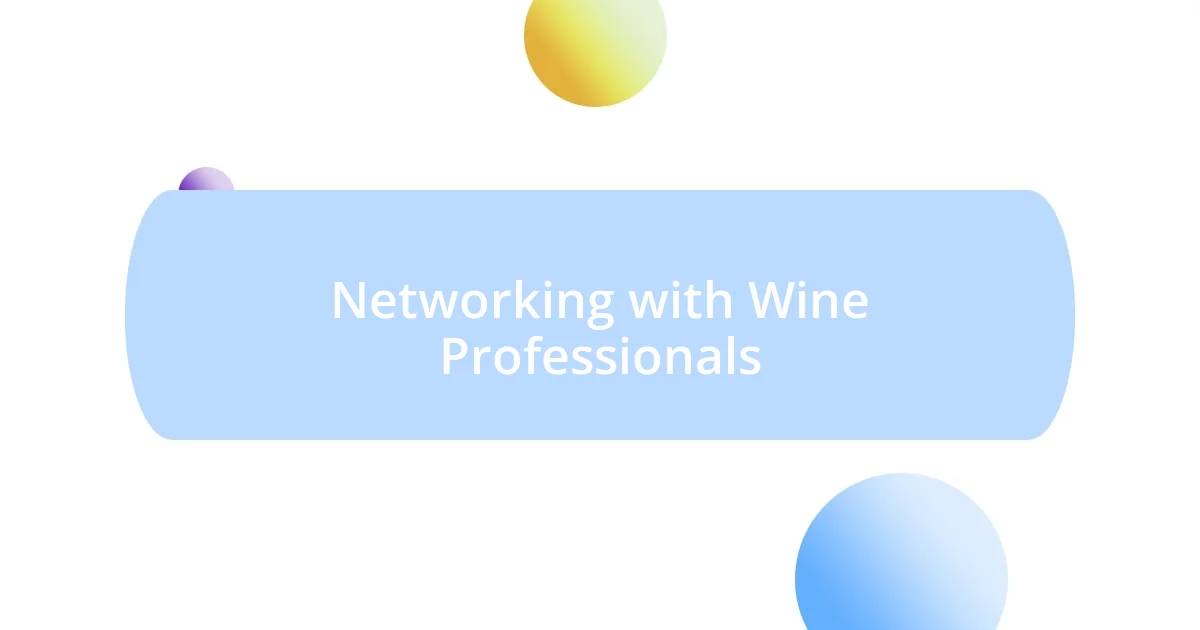
Networking with Wine Professionals
Networking with wine professionals has played a crucial role in my journey as a wine enthusiast. I remember attending a winemaker’s dinner where I sat at a table with not only the chef but also a couple of sommeliers. As the evening progressed, we shared our favorite vintages and debated the nuances of regional styles. Have you ever found that a single conversation can completely change your perspective on wine? That dinner opened my eyes to the intricate world of wine pairing beyond what I had learned in books.
Through these networking experiences, I’ve often discovered opportunities that I wouldn’t have encountered otherwise. I once connected with a wine educator at a festival who later invited me to a small workshop focused on taste evaluation. That session was a game-changer for me. It wasn’t just about sipping wine; it was about learning how to describe what I was tasting, transforming my approach from enjoyment to analytical appreciation. Isn’t it amazing how a simple conversation can lead to transformative learning experiences?
Building relationships with wine professionals has not only enhanced my knowledge but also fostered a supportive community. I often reach out to those I’ve met during events, whether it’s to ask for recommendations or share insights about new wines I’ve tried. I remember a sommelier I met whose guidance helped me select wines for a dinner party, elevating the entire meal. How rewarding is it to have a network of passionate individuals who can guide and inspire you in your wine exploration? These connections have truly enriched my wine journey, turning solitary learning into a vibrant communal experience.
